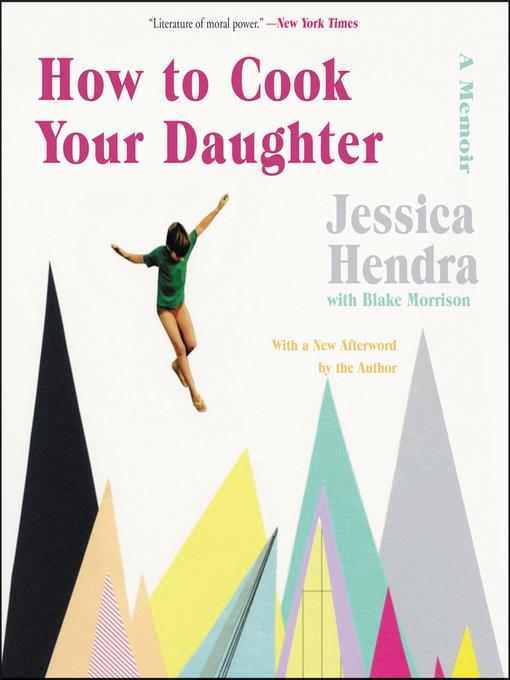
How to Cook Your Daughter
A Memoir
کتاب های مرتبط
- اطلاعات
- نقد و بررسی
- دیدگاه کاربران
نقد و بررسی

August 29, 2005
Reviewed by
Kathryn Harrison
"How to Cook Your Daughter" is the title of an essay written in 1971 by Tony Hendra for the National Lampoon
. Like much of the content of that magazine, which Hendra would eventually edit, "How to Cook Your Daughter" pushes the envelope of satire. A distasteful joke carried to an offensive extreme, it describes, in lewd detail, the toothsome flesh of a girl between the ages of five and six and how best to prepare her for consumption. Probably Mr. Hendra didn't intend his essay as a confession of incestuous longings—at least not consciously—but in appropriating his title for her account of the abuse she says she suffered at his hands, his daughter Jessica has managed to extract a measure of poetic justice.
Jessica Hendra's response to her father's acclaimed confession of sexual transgression, Father Joe: The Man Who Saved My Soul
(2004), is a "my turn memoir" like Leaving a Doll's House
by Claire Bloom, who set the record straight on Philip Roth, or What Falls Away
by Mia Farrow, published on the heels of the Woody Allen and Soon Yi scandal. These he-said-she-said accounts cannot be read fairly, on their own merits, because they are rebuttals rather than independent works. Further complicating the would-be critic's position, the first to speak is typically not only a man but also the more original artist.
So reviewing a book like Jessica Hendra's is a tricky proposition, requiring tact, sensitivity and whatever quality it is that allows one to rush in where angels fear to tread. Blake Morrison (who wrote When Was the Last Time You Saw Your Father?
) has ghosted the book, making it better than it might otherwise be, presumably imposing the dependable form of unfolding two stories in tandem, intercutting the past with the present. The narrative shifts smoothly between Jessica's childhood with her self-sacrificing mother, her stoic sister and her charismatic, substance-abusing, philandering, volatile father, and her later life as a wife and mother coping with the aftereffects of having been allegedly molested by that same father.
Born in 1965 to parents who did a lot of drugs, swam naked in front of the neighbors and frowned on establishment organizations like the Girl Scouts, Jessica Hendra says she has had to work to evolve into a functional adult. She comes across as earnest and likable, but even the help of a seasoned writer cannot make her memoir transcend its agenda. By now familiar with the territory—the sins of unconventional parents visited on their children—readers will come to Jessica Hendra for only one reason: to discover her side of the bitter conflict that erupted in the wake of her father's publishing an account of spiritual awakening that failed to acknowledge what she considers his greatest sin. Agent, Sterling Lord. (Oct.)
Kathryn Harrison's most recent novel,
Envy, was published in July by Random House.

August 15, 2005
For much of her life, Jessica Hendra felt either awed or intimidated by her famous father, comedian/writer Tony Hendra, who wrote and edited the National Lampoon. Growing up in his shadow in the 1970s, she witnessed his counterculture lifestyle, which included drug abuse, adultery, and debauchery. When in 2004 Tony published his bestselling memoir, Father Joe: The Man Who Saved My Soul, he presented himself as a repentant sinner, but Jessica was dismayed to find that he had completely ignored the sin he had committed against hersexual abuse, which propelled her into selfdestructive behavior. In this rebuttal, Jessica relates how she decided to go public with her own story; she tried without success to elicit an admission of guilt and an apology from her father. Also detailed are her struggles with bulimia and anorexia and her current life as a wife and mother. Journalist Morrison helps shape Hendra's memoir into a sharply written and absorbing work. For public libraries where memoirs are popular.Ilse Heidmann, Washington State Lib., Olympia
Copyright 2005 Library Journal, LLC Used with permission.

























دیدگاه کاربران